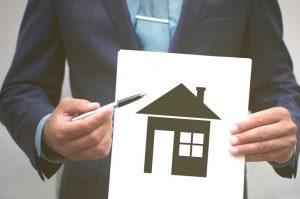Six Signs it is Time to Call a Plumbing Service
- April 8, 2019
- Home Services
- Jessie
- Comments Off on Six Signs it is Time to Call a Plumbing Service
Preventing a plumbing problem is less costly than reacting after it has occurred. Overflow, leaks, and other unaddressed plumbing issues can cause a lot of trouble including structural damage. These are some of the signs it is time to call a plumber before a piping issue escalates.
1. Visible Water
Of course, not all visible water translates to a plumbing problem. After all, water will come out of the shower head once it is turned on. Also, water in a glass on a table doesn’t mean there is a plumbing issue. However, water seeping up from the floor or the presence of water around the base of the toilet could indicate a critical plumbing issue. Stains on the ceiling could also suggest it is time to call a professional plumber. The best time to call a plumber for professional plumbing repair is when you notice water or wetness where it shouldn’t be.
Of course, not all visible water translates to a plumbing problem. After all, water will come out of the shower head once it is turned on. Also, water in a glass on a table doesn’t mean there is a plumbing issue. However, water seeping up from the floor or the presence of water around the base of the toilet could indicate a critical plumbing issue. Stains on the ceiling could also suggest it is time to call a professional plumber. The best time to call a plumber for professional plumbing repair is when you notice water or wetness where it shouldn’t be.
2. Lower Water Pressure
When the toilet takes long to flush or shower water doesn’t come out with force could indicate a water pressure problem. Incorrectly sized pipes, leaks, and clogs are some of the causes of low water pressure. Regardless of what causes it, low water pressure can be an annoying plumbing issue that might necessitate the need to contact a professional plumber.
When the toilet takes long to flush or shower water doesn’t come out with force could indicate a water pressure problem. Incorrectly sized pipes, leaks, and clogs are some of the causes of low water pressure. Regardless of what causes it, low water pressure can be an annoying plumbing issue that might necessitate the need to contact a professional plumber.
3. Dripping Faucets
Research claims that a small leak can result in wastage of thousands of gallons of usable water per year. Dripping faucets are not only hazardous to the environment but also unnecessary expense on the water bill. The common cause of dripping taps is the worn out parts of the faucets such as washers and o-ring.
Research claims that a small leak can result in wastage of thousands of gallons of usable water per year. Dripping faucets are not only hazardous to the environment but also unnecessary expense on the water bill. The common cause of dripping taps is the worn out parts of the faucets such as washers and o-ring.
4. Pipes
Though frozen pipes aren’t unheard of or common, they could be a sign it is time to call a professional plumbing service. Fixing frozen pipes isn’t as complicated as most people perceive it. Smells when taps are on, odd clanking noises, exposed pipes, and frost on exposed pipes are some of the indicators of a frozen pipe. Frozen pipes can also cause a complete stoppage of water flow.
Though frozen pipes aren’t unheard of or common, they could be a sign it is time to call a professional plumbing service. Fixing frozen pipes isn’t as complicated as most people perceive it. Smells when taps are on, odd clanking noises, exposed pipes, and frost on exposed pipes are some of the indicators of a frozen pipe. Frozen pipes can also cause a complete stoppage of water flow.
5. Slow Drains
A clogged drain is the primary cause of slow drainage. Calling a professional plumbing service is the best solution for any slow drains. Never resort to DIY solutions such as using chemical drain cleaners as they often damage the piping and cause corrosion, which might be costly to fix. However, regular drain cleaning is enough to prevent cases of slow drains.
A clogged drain is the primary cause of slow drainage. Calling a professional plumbing service is the best solution for any slow drains. Never resort to DIY solutions such as using chemical drain cleaners as they often damage the piping and cause corrosion, which might be costly to fix. However, regular drain cleaning is enough to prevent cases of slow drains.
6. Presence of Dirt in Water
Dirt in water could be indicative of an underlying plumbing issue. For example, brown water could indicate a problem with your heater or the presence of iron in the water. Green and blue water can be as a result of corrosion in copper pipes.
Dirt in water could be indicative of an underlying plumbing issue. For example, brown water could indicate a problem with your heater or the presence of iron in the water. Green and blue water can be as a result of corrosion in copper pipes.
To learn more, contact Drain Rescue
Additional Sources
- Easy Apartment Decor Ideas on a Budget
 Crypto Exchanges – Compare Before You Choose One!
Crypto Exchanges – Compare Before You Choose One!- What Does Real Estate CRM Mean?
 Top 4 Ways To Find The Best Homes For Sale
Top 4 Ways To Find The Best Homes For Sale 4 Tips for Renting the Right Moving Truck
4 Tips for Renting the Right Moving Truck Top 6 Packing Mistakes to Avoid
Top 6 Packing Mistakes to Avoid Six Signs it is Time to Call a Plumbing Service
Six Signs it is Time to Call a Plumbing Service 5 Tips for Moving Pets to a New Home
5 Tips for Moving Pets to a New Home
| M | T | W | T | F | S | S |
|---|---|---|---|---|---|---|
| « Dec | ||||||
| 1 | 2 | 3 | 4 | 5 | 6 | 7 |
| 8 | 9 | 10 | 11 | 12 | 13 | 14 |
| 15 | 16 | 17 | 18 | 19 | 20 | 21 |
| 22 | 23 | 24 | 25 | 26 | 27 | 28 |
| 29 | 30 | 31 | ||||
